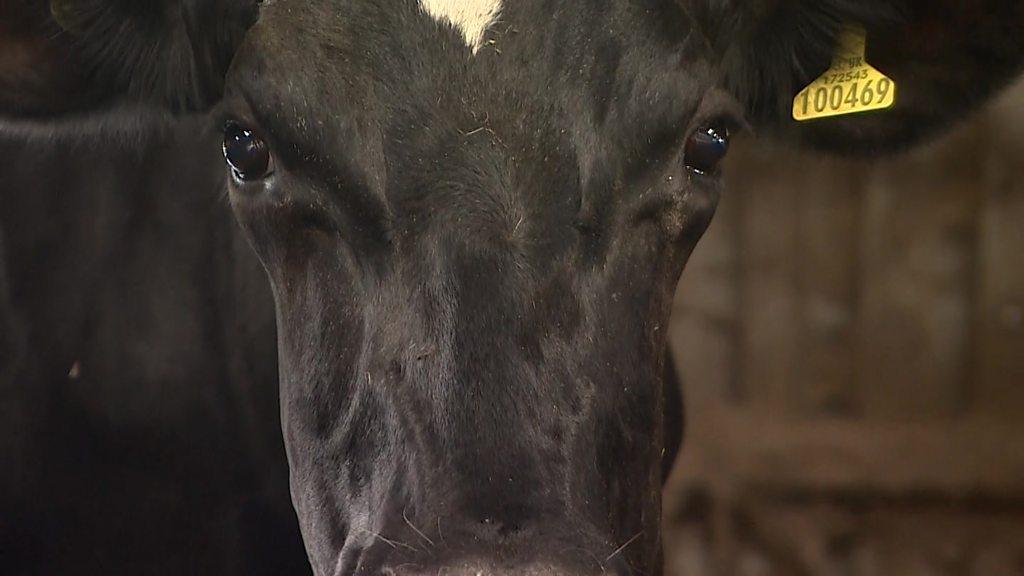Dairy farmers 'could go under' despite milk demand rise
- Published

Even farmers not contracted by Freshways are also affected, including Matthew Weaver, because Freshways' prices are seen as a market standard
Dairy farmers are warning they will go out of business because the price they are paid for milk has fallen, despite shortages in some supermarkets.
The UK's main milk processor Freshways, said its cut of 2p-per-litre was "unfortunate" but a drop in trade with coffee shops and pubs had forced it.
Staffordshire farmer Peter Pratt said this comes after he lost 65% of crops during floods.
The government said it was looking at the problem "as a matter of urgency".
Payments to farmers by Freshways will also be deferred until 15 May after the "excessive decline", managing director Bali Nijjar said.
The National Farmers' Union (NFU) dairy board chairman Michael Oakes, said some dairy farmers were "particularly vulnerable" in this "highly volatile situation".
Mr Pratt, a dairy, arable and beef farmer employing six people in Rugeley, said his family-run farm had been "hard hit".
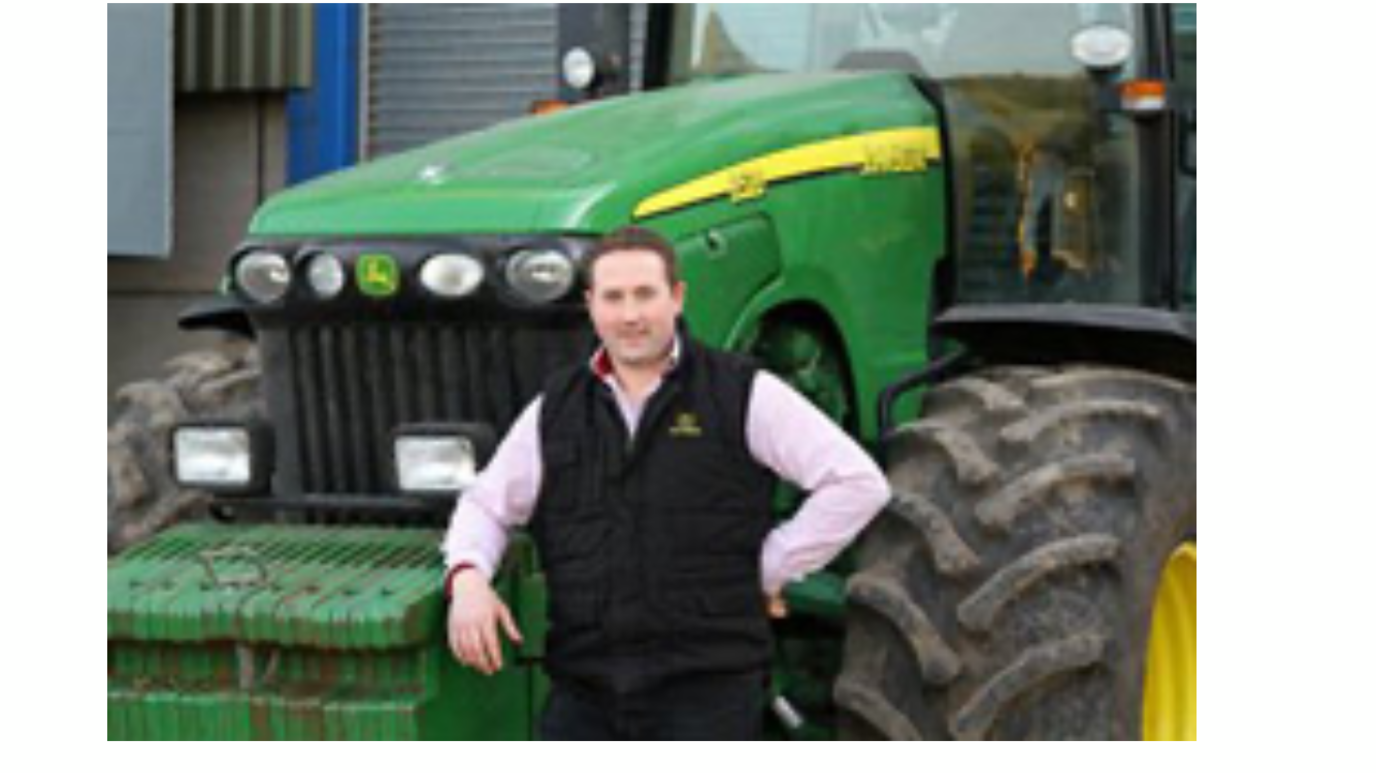
Peter Pratt said he was 'quickly running out of money'
His 200 cows produce about 6,000 litres a day on the 1,500 acre site but he was "quickly running out of money" and wanted the government to act.
Alan Smith, from Bumble Bee Farm in Leicestershire, said the future of his 101-year-old farm, employing four family members, was now in doubt.
"We're losing nine pence on every litre [of milk] we send but the worst of it is they won't now pay us for 70 days," he said.
"We can't go on losing forever."
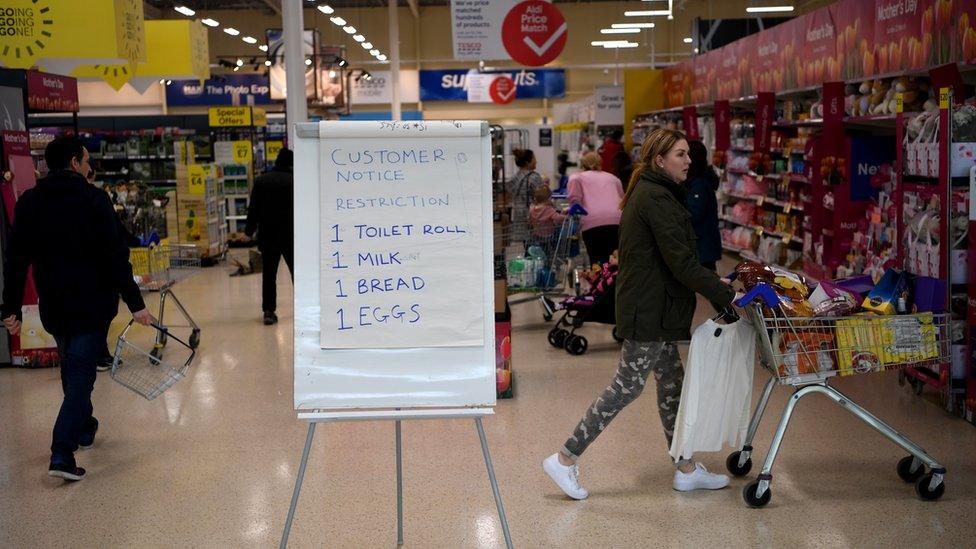
Milk co-operative Arla Foods UK said it had experienced a "significant" increase in demand from consumers
Milk co-operative Arla Foods UK said it had experienced a "significant" increase in demand from consumers and had managed to increase supplies of milk to supermarkets significantly by "simplifying the business".
Managing director Ash Amirahmadi, said he had spoken to the government who were "working very hard to put the framework together for us to allow more co-operation".
A Defra spokesperson said: "We are aware of the need to redirect produce from the hospitality market to the retail market and are looking at it as a matter of urgency.
"We are working closely with representatives from the dairy supply chain to understand what short-term and long-term support the whole sector needs."
- Published28 March 2020
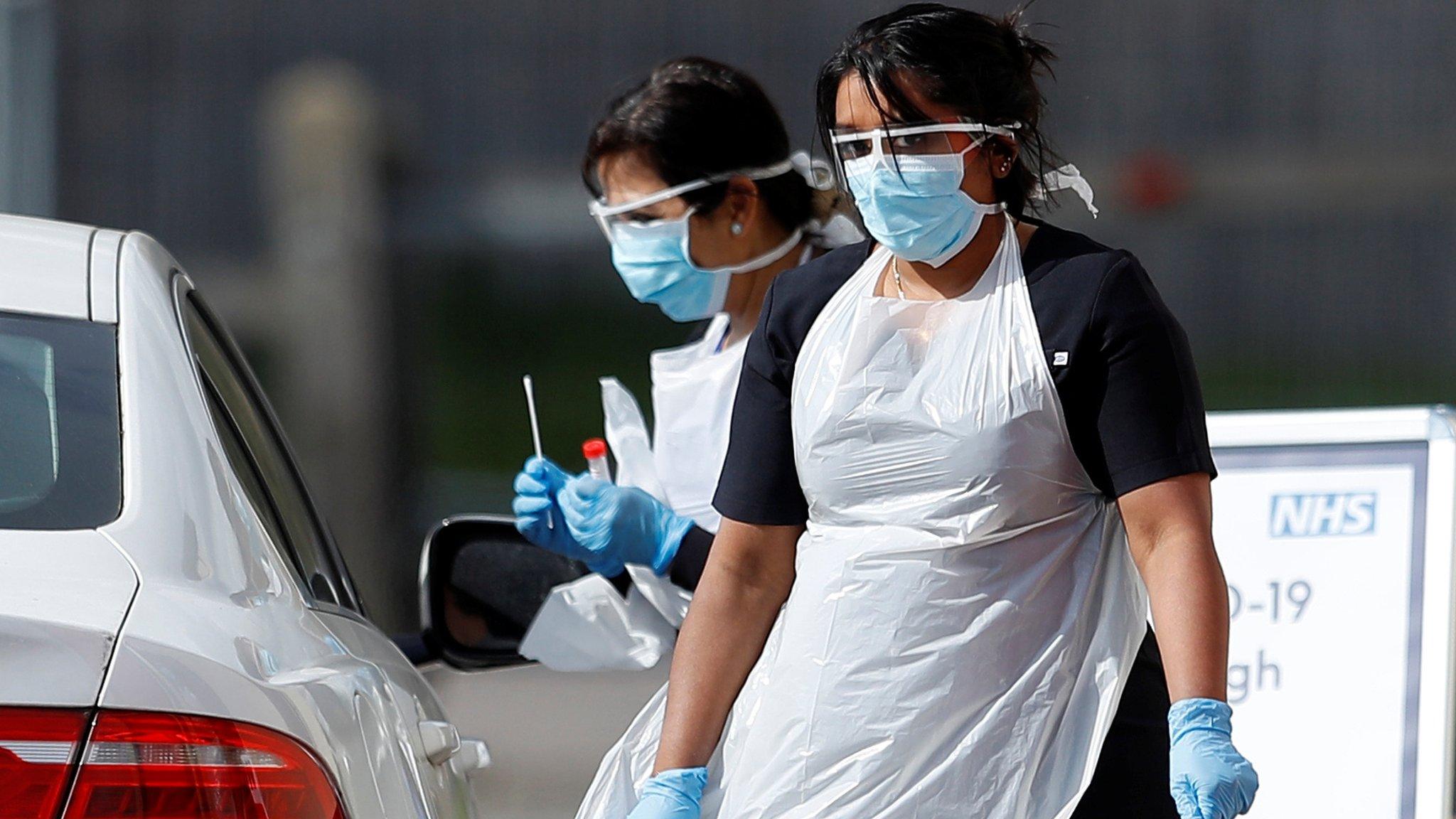
- Published20 February 2020
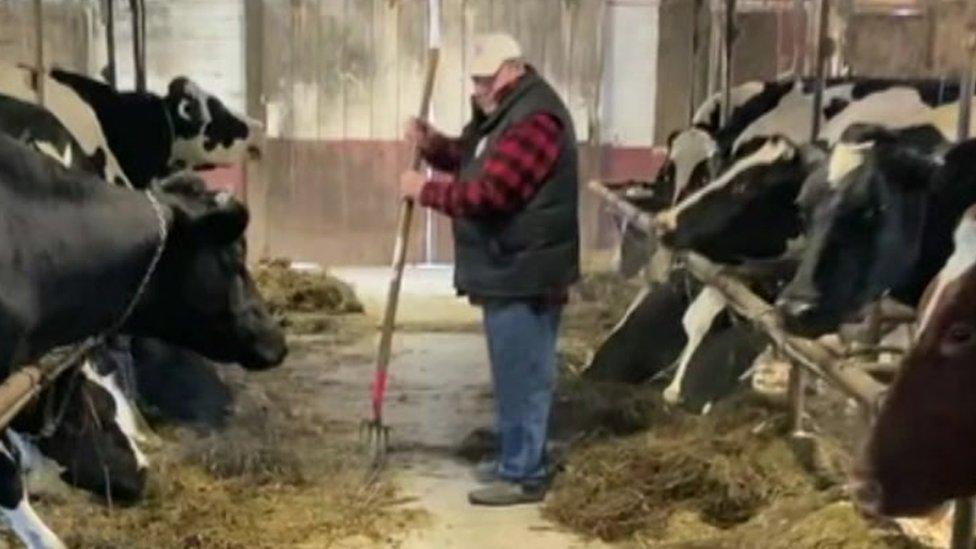
- Published20 August 2019
